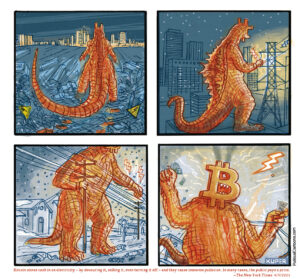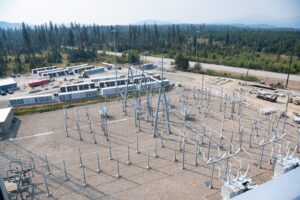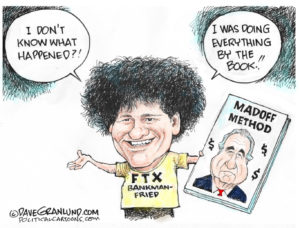The Bill Comes Due for FTX
Beware of false profits. Beware of false profits.
Beware of false profits.
Sam Bankman-Fried, the founder and CEO of the cryptocurrency exchange FTX and the cryptocurrency trading firm Alameda Research, was supposed to be testifying before the U.S. Congress this week to explain his company’s spectacular implosion. Instead, he is cooling his heels in a jail in the Bahamas, denied bail and awaiting possible extradition to the United States to face a slew of charges, including conspiracy to commit wire fraud and securities fraud, money laundering and conspiracy to avoid campaign finance regulations.
The collapse of FTX was interwoven with Bankman-Fried’s toxic rivalry with another crypto magnate, Changpeng “CZ” Zhao, founder of Binance (the Justice Department is currently investigating whether or not Binance violated the Bank Secrecy Act). It serves as another cautionary tale of the trepidation with which the many self-professed “visionaries” of the crypto world should be approached.
Despite often articulating utopian-sounding goals of decentralization and personal empowerment, in recent years, crypto has become synonymous in many parts of the world with authoritarianism and corruption.
In El Salvador, President Nayib Bukele has courted bitcoin investors (some of whom promote the concept of “private” cities), making the digital currency become legal tender in El Salvador in September 2021, and turning the once-bohemian surfing enclave of El Sunzal into so-called Bitcoin Beach. He has done so even as he has launched a wide-ranging crackdown on the country’s street gangs, which local and international human rights groups have charged has been marked by widespread human rights abuses.
In Puerto Rico, especially since the devastation wrought on the island by 2017’s Hurricane Maria, affluent crypto aficionados from mainland have been accused of buying up real estate, driving up housing prices, displacing locals and taking advantage of measures such as Act 22, which provides a total exemption from Puerto Rico income taxes on all passive income realized or accrued after such individuals become bona fide residents of Puerto Rico. In areas like Viejo San Juan and Dorado, the new arrivals have created a snarlingly unequal dual economy. Francis Suarez, mayor of Miami (where American Airlines Arena was re-christened FTX Arena in 2019), evangelized for the city’s own cryptocurrency, Miami Coin, which is now worth “about five-ten thousandths of a cent.” In the Bahamas, when Bankman-Fried and his cohort arrived, Bahamas Prime Minister Philip Davis was a vocal crypto booster and hailed the crypto officers’ move to the archipelago nation.
Even as Bankman-Fried expanded his own empire — pursuing a mind-bogglingly expensive real estate buying spree in his adopted home — he did so under the guise of so-called “Effective Altruism” (EA), a philosophy promoted by Oxford University professor William MacAskill, where one ostensibly “earns to give.” As Émile P. Torres noted in an article in Truthdig earlier this month, “It’s easy to give away part of your income — and sound saintly announcing this on TV — when you have, say, a mansion in the Bahamas or multimillion-dollar budgets to promote your projects and your brand.”
As others line up to try on Bankman-Fried’s crown as crypto king, the collapse of FTX and Alameda should urge caution for all those inclined to take them at face value.
Your support matters…Independent journalism is under threat and overshadowed by heavily funded mainstream media.
You can help level the playing field. Become a member.
Your tax-deductible contribution keeps us digging beneath the headlines to give you thought-provoking, investigative reporting and analysis that unearths what's really happening- without compromise.
Give today to support our courageous, independent journalists.






You need to be a supporter to comment.
There are currently no responses to this article.
Be the first to respond.